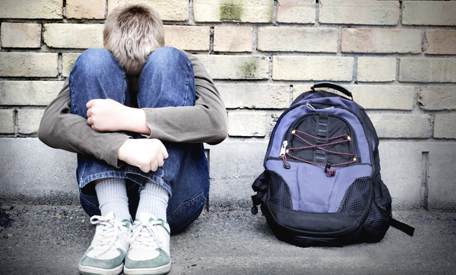Isolation and Loneliness: The Mental Health Consequences of Being Bullied

Isolation and Loneliness: The Mental Health Consequences of Being Bullied
Bullying, a pervasive issue affecting children and adolescents, involves intentional and repeated harm inflicted by one or more individuals upon another. It can manifest in various forms, including physical, emotional, and cyberbullying. Research consistently demonstrates the detrimental impact of bullying on the mental well-being of victims, with isolation and loneliness emerging as significant long-term consequences.
The Link Between Bullying, Isolation, and Loneliness
Children and adolescents who experience bullying often face social rejection and exclusion by their peers. This can lead to feelings of isolation and loneliness, as they struggle to form and maintain meaningful relationships. Victims of bullying may withdraw from social situations, fearing further victimization or embarrassment. Over time, prolonged isolation can have severe consequences for their mental health.
Mental Health Consequences of Isolation
Isolation and Loneliness is a major risk factor for a range of mental health issues, including:
- Anxiety: Children who are isolated may experience excessive worry, fear, and difficulty concentrating.
- Depression: Isolation can contribute to feelings of sadness, hopelessness, and loss of interest in activities.
- Low self-esteem: Victims of bullying often internalize negative messages about themselves, leading to low self-esteem and a diminished sense of self-worth.
- Suicidal thoughts and behaviors: In severe cases, prolonged isolation and loneliness can increase the risk of suicidal thoughts and behaviors.
Identifying Signs of Distress
Parents and teachers play a crucial role in identifying signs of distress in children who may be bullied and isolated. Some common indicators include:
- Changes in behavior: Withdrawal from social activities, irritability, or aggression.
- Physical symptoms: Headaches, stomachaches, or fatigue.
- Academic difficulties: Decline in grades or difficulty concentrating in school.
- Emotional distress: Persistent sadness, anxiety, or anger.

Supporting Children Who Are Bullied
If you suspect a child is being bullied and experiencing isolation, it is essential to provide support and intervene effectively:
- Talk to the child: Engage in open and empathetic conversations about their experiences. Let them know that you believe them and support them.
- Encourage professional help: If the child is struggling to cope with the emotional consequences of bullying, consider seeking professional help from a therapist or counselor.
- Educate others: Talk to teachers, school administrators, and other parents about the issue of bullying and its harmful effects. Work together to create a supportive and inclusive environment for all children.
Fostering a Supportive Environment
Preventing bullying and promoting mental well-being requires a collective effort from parents, teachers, and the community. Here are some suggestions for fostering a supportive environment:
- Establish clear rules and consequences: Set clear expectations regarding bullying behavior and enforce consequences for those who engage in it.
- Promote empathy and respect: Encourage children to understand the perspectives of others and treat each other with respect.
- Provide opportunities for social connection: Create opportunities for children to interact and build positive relationships with their peers.
- Empower children to speak up: Teach children how to report bullying and empower them to seek help if they are being victimized.
Conclusion
Bullying can have a profound impact on the mental health of children and adolescents. Isolation and loneliness are common consequences that can lead to a range of mental health issues. By recognizing the signs of distress, providing support, and fostering a supportive environment, parents and teachers can help bullied children cope with the emotional consequences and promote their overall well-being. Remember, every child deserves to feel safe, included, and valued.

